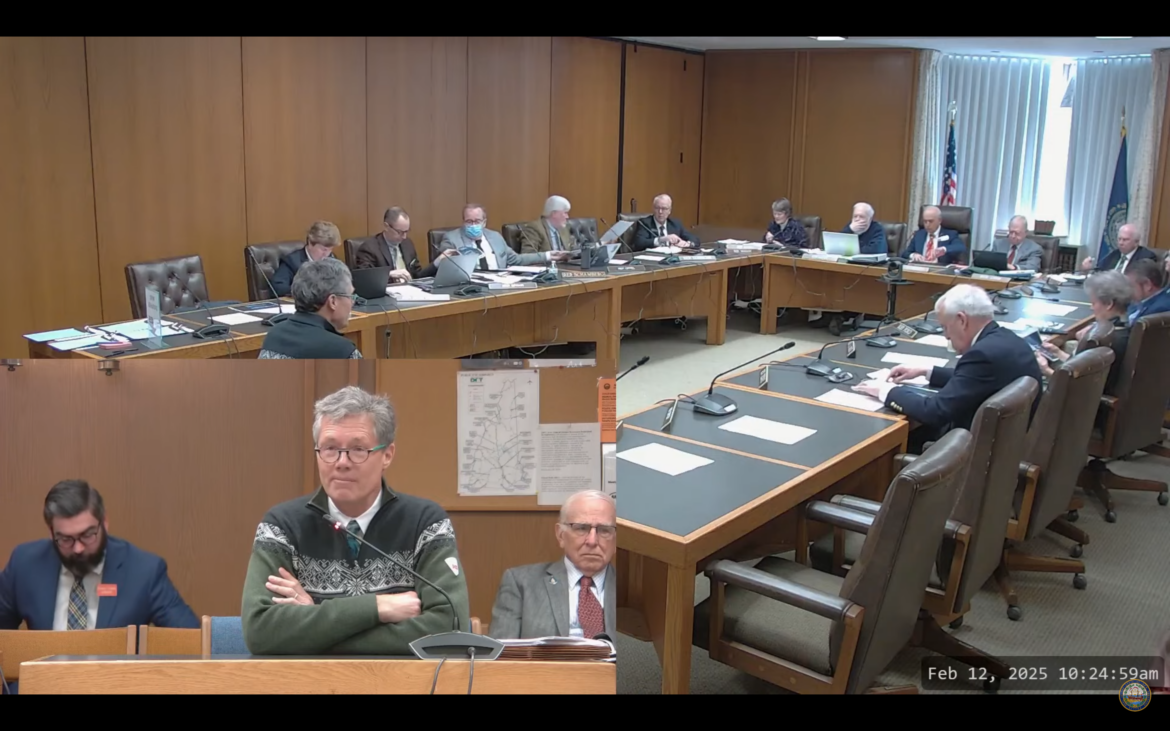By GARRY RAYNO, InDepthNH.org
CONCORD — The state of New Hampshire may be misinforming Education Freedom Account parents about their federal tax liability for the grant money they receive.
The EFA statute includes a sentence that states “Funds deposited in an EFA shall not constitute taxable income to the parent or the EFA student.”
But tax attorney William Ardinger told the House Ways and Means Committee that is not necessarily true as he supported House Bill 402, which would remove the sentence from the statute.
“I believe it is inaccurate as a matter of federal tax law,” Ardinger said. “I believe the state of New Hampshire should not put what could be viewed as tax advice into a statute and that tax advice could be wrong and someone could rely on it and suffer the consequences.”
The prime sponsor of the bill, Rep. David Luneau, D-Hopkinton, said his bill is about being truthful.
“I am not saying they are taxable or they aren’t taxable as income under the IRS code,” Luneau said. “It is not our role to determine what is taxable under federal law.”
He noted that US Sen. Ted Cruz introduced a bill into Congress to ensure that voucher grants are not taxable as income, although the bill failed.
Why do we think he introduced that bill, Luneau asked the committee.
Opponents to the bill called it a solution in search of a problem.
Former Rep. Packy Campbell, R-Farmington, said the bill would violate the Constitution’s equal protection clause treating students in the EFA program differently than those in “government schools.”
“Does anyone think taxing the Education Trust Fund will help pay for the cost of education?” he asked. “This is a regressive tax targeting a program that has wonderful benefits.”
Ardinger later said the bill would not institute a new tax in any way.
Stephen Mathieu, of LSF Tax Group in Manchester, said there is no problem with taxable income from EFA grants.
“No accountants across the country would assume this is taxable income,” he said. “Let the sleeping law lie.”
But Ardinger said looking down the lengthy list of allowable purchases under the EFA, there are only two or three categories that are clearly not taxable, such as tuition and fees, room and board, and books and supplies at what would be seen as a normal university or school.
But such things as paying for a tutor, on-line learning programs, computer hardware and connectivity, software and applications and standardized tests can be taxable, Ardinger said.
When the program began it was not really a concern because most of the children participating were from really poor families, he noted.
Families earning less than $30,000 don’t have to file tax returns, he said, adding that half the people in the country don’t file tax returns.
“No harm no foul,” Ardinger said. But with the 350 percent of poverty cap on income a family of four can earn up to $109,000 and they are paying taxes.
If that family is homeschooling four kids using an on-line service, that is taxable, that is $20,000 in grants that would add to their taxable income, he noted.
“Now you have a problem,” he said. He said if the family is audited and has to pay taxes on the $20,000, that has to come from the family’s pocket not the state’s.
Ardinger said the administrator is taking 10 percent off the top, and taxes at about 20 percent so now that $1 is 70 cents for the family.
Vouchers are becoming a bigger issue in Washington as programs grow across the country, he said, and some bills have sought to expand what would be tax exempt under the programs.
But he noted, nothing in New Hampshire law can change federal tax policy.
The problem is the state language in the RSA potentially gives misleading information.
“For the State of New Hampshire and this committee and this legislature to say in statute the amount you received under this program shall not constitute taxable liability” Ardinger said, “potentially misleads.”
There are about 5,400 students in the EFA program which will cost about $28 million this school year.
By far the biggest use of the money is for tuition and fees to private and religious schools.
The committee did not make an immediate recommendation on the bill.
Garry Rayno may be reached at garry.rayno@yahoo.com.





